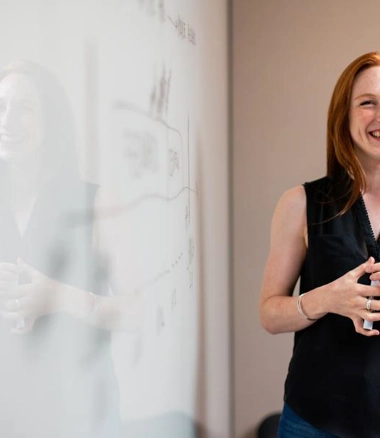
New Year's Resolutions for Engineers: Micro-Goals for Macro Success
Setting the Scene for Success in 2024
As engineers, we are no strangers to the concept of constant evolution and adaptation. The start of a new year is traditionally a time for setting goals and resolutions. But, as the world has changed dramatically in the past few years, so too should our approach to New Year’s resolutions. Engineers, with their unique blend of technical skill and creative problem-solving, are well-positioned to thrive in this era of change. So, how can engineers set themselves up for success, professional development, and career growth in 2024?
Embracing Micro-Resolutions for Macro Impact
First, let's talk about micro-resolutions. Unlike traditional resolutions, which often are lofty and vague, micro-resolutions are small, manageable, and actionable steps that collectively lead to significant achievements. For engineers, this could mean setting a goal to learn a new programming language, improving soft skills like communication or leadership, or even dedicating a few hours each week to reading industry-related material.
Pros and Cons of a January Job Change
But what about changing jobs? January often brings the temptation to start fresh in a new role. While a new job can bring new challenges and opportunities for growth, it's important to weigh this decision carefully. Let's dive into the pros and cons:
Pros:
- Fresh Start: January is symbolically a time for new beginnings, making it psychologically satisfying to embark on a new professional journey.
- Increased Openings: Many companies start their fiscal year in January, often coinciding with new budgets and job openings.
Cons:
- Rushed Decisions: The 'new year, new me' mindset can sometimes lead to hasty decisions without thorough consideration.
- Competition: January is a popular time for job changes, which means more competition for available roles.
Aligning New Opportunities with Micro-Goals
Before jumping into a new job, engineers should align potential opportunities with their micro-goals. Here’s how:
- Evaluate Skills and Interests: Reflect on what you enjoy most in your current role and where you want to grow. Does a potential new job offer opportunities in these areas?
- Company Culture and Values: Ensure the company’s culture aligns with your personal values and work style. A mismatch here can lead to dissatisfaction down the line.
Assessing If a New Job Is Right for You
So, how do you know if a new job is right for you? Here are some questions to consider:
- Does the new role align with your long-term career aspirations?
- Will it offer the work-life balance you desire?
- Are there opportunities for continuous learning and growth?
Conclusion: A Year of Growth and Development
For engineers in Australia seeking professional development resources, there are several valuable options to explore:
- Engineers Australia CPD: Engineers Australia, as the largest peak body for engineers in Australia, offers a comprehensive Continuing Professional Development (CPD) program. This includes access to exclusive tertiary and short courses, a suite of online resources like on-demand training and webinars, a comprehensive events calendar, and an online library with various engineering resources. They also provide professional networking groups and volunteer opportunities. Members can record their CPD activities via the Engineers Australia portal.
- Professional Year in Engineering Resources: The Professional Year in Engineering by Engineering Education Australia is designed for engineering graduates. It helps them connect with the Australian engineering industry, become work-ready, and excel in their fields. This program includes resources, job-hunting advice, and exclusive content for Engineers Australia members, assisting them in building a rewarding and successful engineering career.
- Engineers Australia Professional Standards Framework: This framework is a system of policies, processes, and resources that guide and support engineers to practise ethically, competently, and responsibly. It covers the career span of an engineer, from pre-qualification to advanced practice and executive management, and is designed to set, uphold, and enhance standards that protect the public and build trust in the profession.
- Types and Conditions for CPD: Engineers Australia outlines various types of CPD activities, including tertiary courses, seminars, workplace learning, private study, community engagement, and creation/presentation of educational material. They also specify conditions for these activities, such as the maximum number of hours that can be claimed and the focus areas for CPD.
- CPD Record Keeping: Engineers Australia provides an internet-based platform for professionals to document, monitor, and manage their CPD. This includes a CPD record sheet for tracking activities, and the portal also generates a summary of CPD compliance status.
As engineers, our journey is not just about the technical skills we acquire but also about the ways we adapt and grow in an ever-changing landscape. By setting micro-resolutions, being mindful of our career choices, and continuously learning, we can ensure that 2024 is a year of both personal and professional growth.
Remember, the key to a successful year lies not just in setting goals but in the small, consistent steps we take towards achieving them. Here's to a year of growth, innovation, and success!





